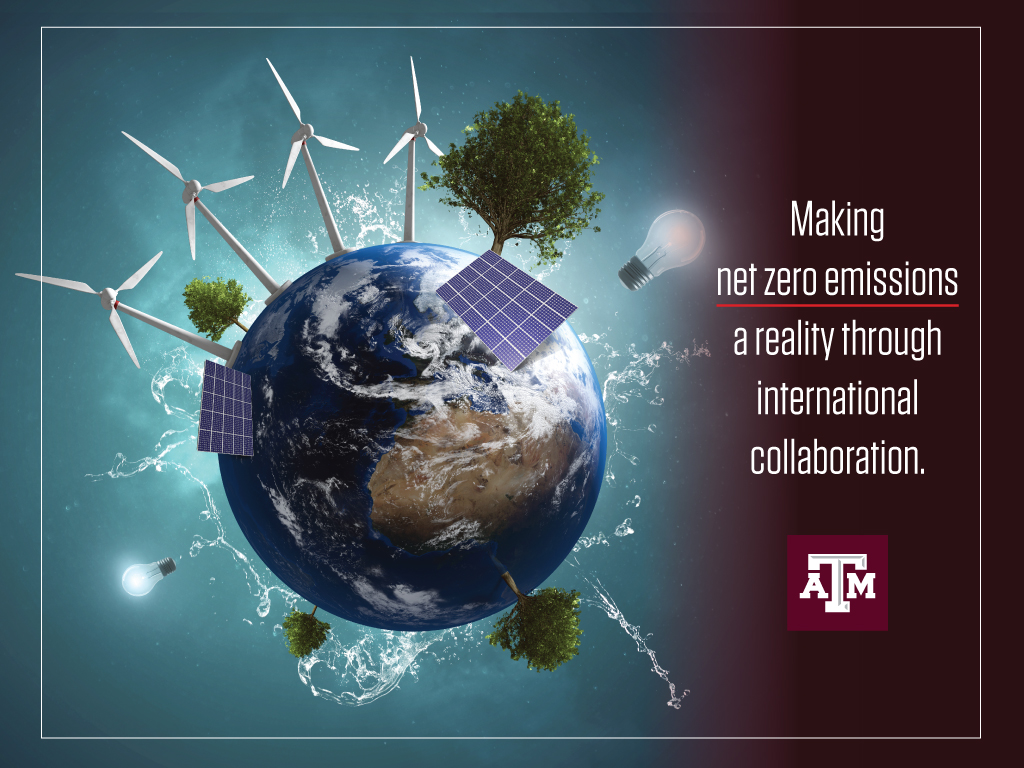A global call for net zero emissions

A worldwide coalition of leading climate-research universities—including Texas A&M University—issued its first-ever declaration ahead of the G20 Summit to be held on Nov. 21–22, 2020. The declaration from the International Universities Climate Alliance asked G20 leaders to use the post-COVID recovery to implement measures to counteract climate change, warning that failure to do so will lock in catastrophic consequences for generations to come.
The G20 (or Group of Twenty) provides an international economic forum for governments and central bank governors from 19 countries plus the European Union. This year’s meeting is the 15th for the G20. Saudi Arabia will host the event, which will be held virtually due to the COVID-19 pandemic.
“International collaboration is vital to solving the climate crisis while meeting the needs and respecting the rights of all who share this planet,” Vice President for Research Mark A. Barteau said. “As the land-, sea-, and space-grant university in America’s energy and agricultural hub, Texas A&M brings considerable expertise to the understanding of climate change causes, consequences and solutions. We are delighted to join with colleagues around the world to help make the imperative of net-zero carbon emissions a reality.”
Formed in April 2020, the alliance’s member universities span all populated continents, representing one-third of the 100 highest-performing climate-research universities and a quarter of the top 100 environmental-research universities in the world.
In today’s declaration, the alliance stated, “We implore world leaders—particularly G20 leaders—to learn lessons from managing the pandemic: namely, to heed expert advice, to act with urgency and to prioritize investments strategically. In the case of climate change, this means decarbonizing the economy to build a climate-resilient world for future generations. Without a focus on a carbon-neutral economy, investments are incompatible with the important commitments that nations have pledged in the Paris Agreement.
“Evidence-based solutions are available today that both decarbonize and strengthen the economy; examples include clean physical infrastructure founded on renewables, building efficiency retrofits, investment in education and training, natural capital investment and innovation in low carbon technologies,” according to the declaration.
G20 members represent 85 percent of the international Gross Domestic Product and nearly 80 percent of global emissions of carbon dioxide. G20 members consume 95 percent of the world’s coal and more than 70 percent of its oil and gas. “The G20 leaders therefore have both an obligation and the opportunity to lead global systemic change. G20 governments need to work together to ensure fossil fuel industries rapidly move at scale to become net-zero carbon energy providers,” the declaration asserted.
Ian Jacobs, president and vice chancellor of the University of New South Wales (UNSW) Sydney in Australia, a founding member of the alliance, said he and his colleagues recognized the need for experts with diverse voices to speak out about the climate crisis.
“Many challenges lie ahead of us in combatting the existential crisis in which the world finds itself,” Jacobs said. “The International Universities Climate Alliance is a rich resource upon which governments, business, industry and the wider community can rely for evidence-based expert advice.”
Unprecedented in scale and scope, the alliance will support world leaders, policy makers and industry in planning for and responding to climate change. It also will provide a central hub for universities to share the latest climate research and enable greater collaboration between leading research teams.
To support its declaration, the alliance plans to hold regional media events with a panel of speakers from university members in the Asia Pacific and the United Kingdom.

